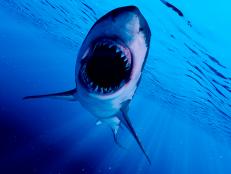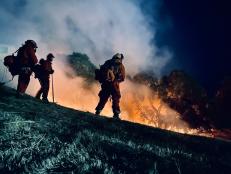Articles
Showing 1 - 15 of 2,629 results
Shark Week 2025 Kicks Off July 20th
Shark Week is back for its 37th year on Sunday, July 20th. Don't miss it!
Get Ready for Puppy Bowl XXI on Animal Planet!
Puppy Bowl XXI premieres Sunday, February 9 at 2P ET/11A PT with more adoptable puppies from shelters and rescues than ever before.
Catch the Puppy Bowl Official Scrimmage Only on TikTok
Before you stream PUPPY BOWL XVII on discovery+ this Sunday, February 7 at 2PM ET/11AM PT, get a sneak peek at the puppy scrimmage to end all scrimmages. Watch Team Ruff and Team Fluff go head to head LIVE over on @AnimalPlanet's TikTok on Saturday, February 6 at 2PM ET.
Do You Want to Go to Space?
Have you always dreamed of going to space? Former NASA astronaut Mike Massimino answers our questions about life at the International Space Station.
We Have Liftoff: Congratulations to NASA and SpaceX
Here's to NASA, SpaceX, Astronauts Bob Behnken and Doug Hurley, and all of the engineers, scientists, and staff involved with the Saturday, May 30th historical launch.
There’s a Lot You Don’t Know About Sharks
But in the meantime, here are some fin-tastic facts you probably didn’t know about sharks.
Top 5 Reasons Why the “UFO Report” Isn’t Interesting to me, a Scientist
Excited by the prospects of the “UFO Report”? As a scientist, I have my doubts. But you can watch UFOS DECLASSIFED: LIVE on Discovery and Science June 30 at 8P where experts discuss what can and can't be explained.
What You Can't Miss on Discovery This Week
In need of plans? We've got you covered! Here's what you can watch on Discovery all week!
Shark Week 2024
Shark Week hosted by John Cena was an electrifying and unforgettable experience that left fans in awe of the world beneath the waves. Check out what happened during the best week of the summer on Discovery. See the full schedule or stream Shark Week on Max!
Get Ready for Puppy Bowl XIX
Puppy Bowl XIX premieres Sunday, February 12 at 2P ET/11A PT with more adoptable puppies from shelters and rescues across the nation.
Get Ready for Puppy Bowl XX on Animal Planet!
Puppy Bowl XX premieres Sunday, February 11 at 2P ET/11A PT with more adoptable puppies from shelters and rescues than ever before.
Welcome to the Front Lines of CAL FIRE
The 2020 wildfire season in California has been the worst in state history. More than 4.1 million acres have burned, 9,400 homes and structures have been destroyed, and 33 lives have been lost. Discovery is taking viewers to front lines with CAL FIRE — premiering Sunday, Jan. 3 at 10p ET.
NFL SUPER STADIUMS Follows the Epic Journey of Building SoFi Stadium
In partnership with the NFL, Discovery and Science Channel go behind the scenes and follow the remarkable journey of constructing SoFi Stadium in an all-new, two-hour special, NFL SUPER STADIUMS premiering Wednesday, September 9 at 8P on Science Channel and Saturday, September 12 at 11A on Discovery.
Here's a Rundown of Each Team Competing in STREET OUTLAWS: FASTEST IN AMERICA
Twelve of the fastest street racing teams in America are taking to a secret road in Wyoming to compete for $300,000 and a chance to call themselves the fastest in America. Here's a full rundown of the teams, drivers, and their cars. STREET OUTLAWS: FASTEST IN AMERICA premieres Monday, October 19 at 8p on Discovery.
America’s Fastest Racers Return to the Track on STREET OUTLAWS: NO PREP KINGS
The wait is finally over! America’s fastest track racers are back, and the stakes are higher than ever with new cars, new drivers, 15 events, and nearly $900,000 up for grabs. STREET OUTLAWS: NO PREP KINGS returns for an all-new season on October 11 at 8p on Discovery.





















